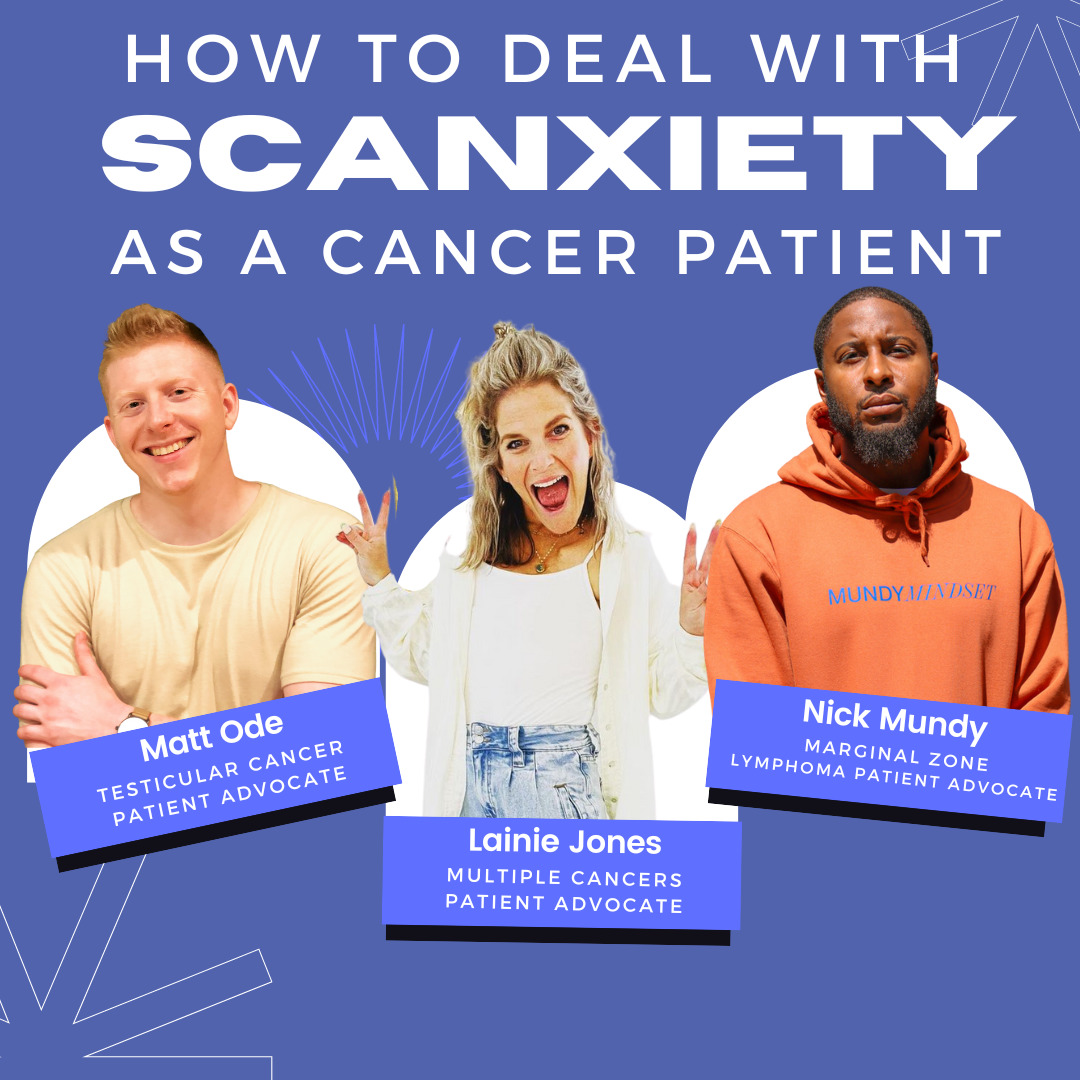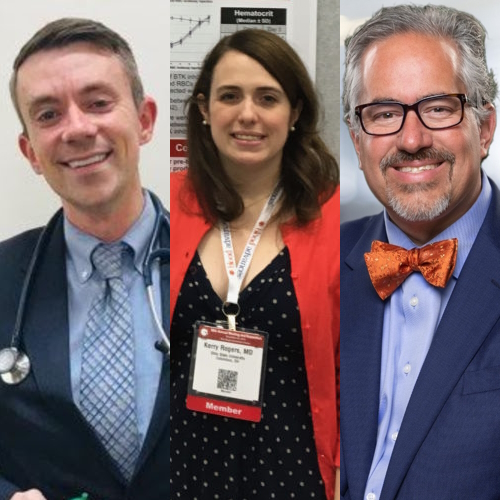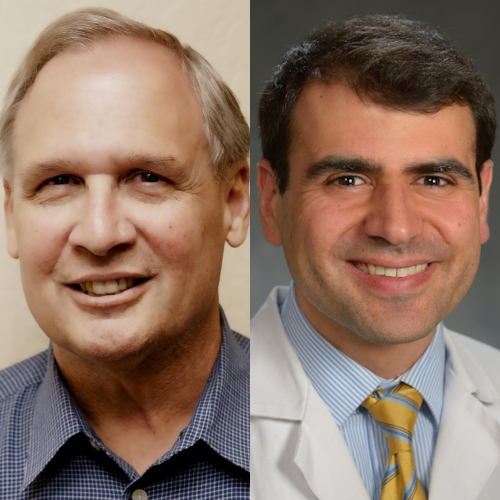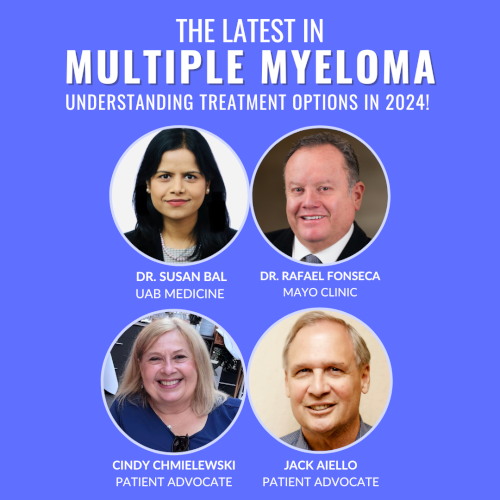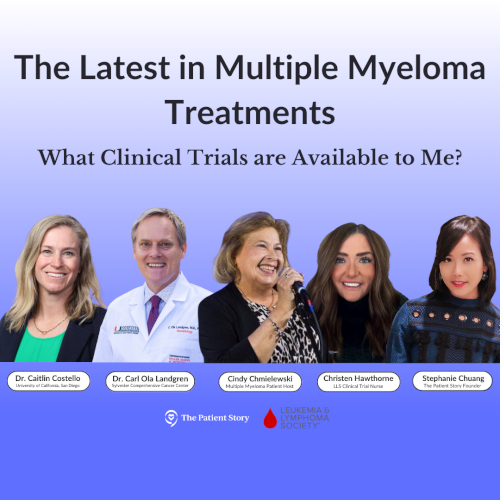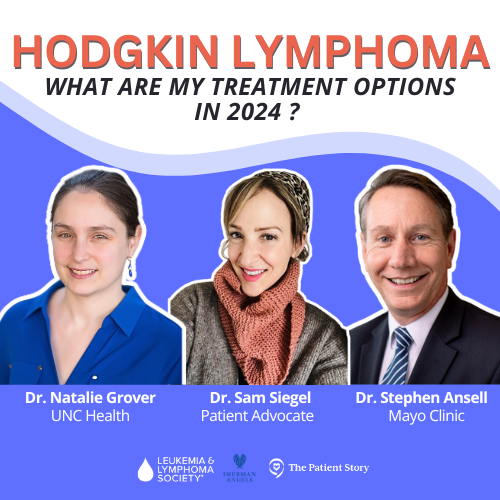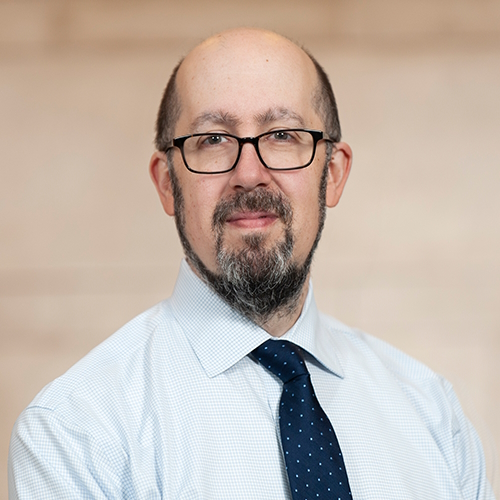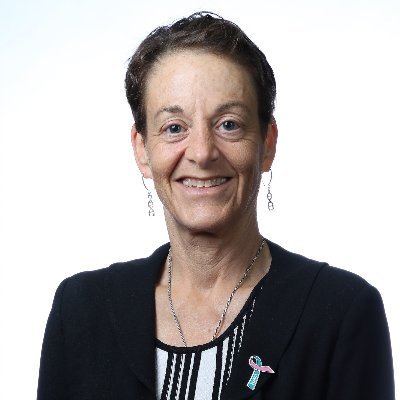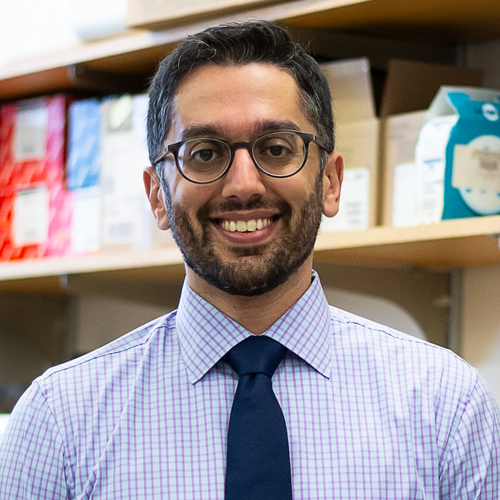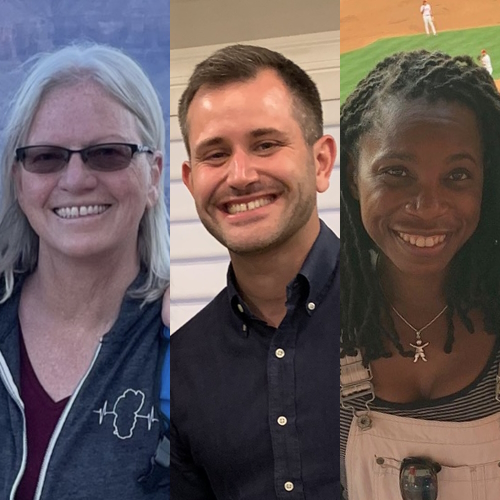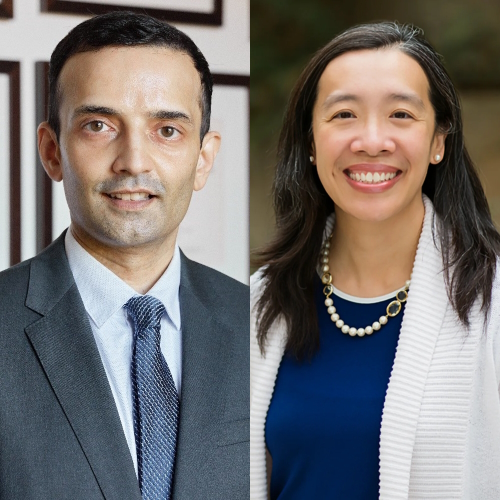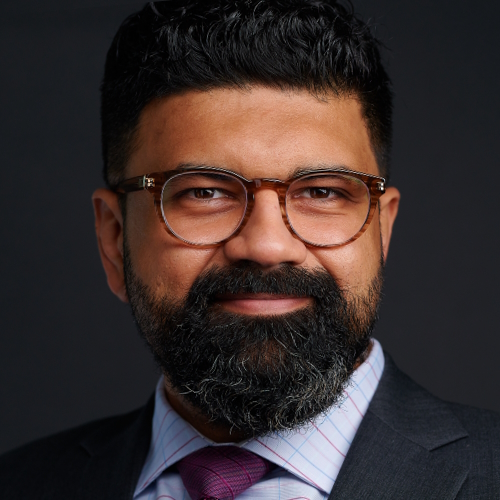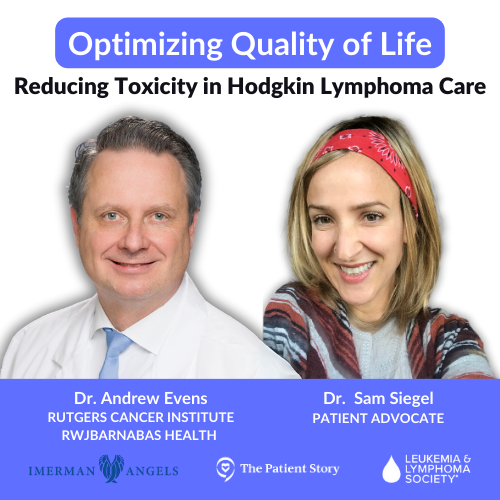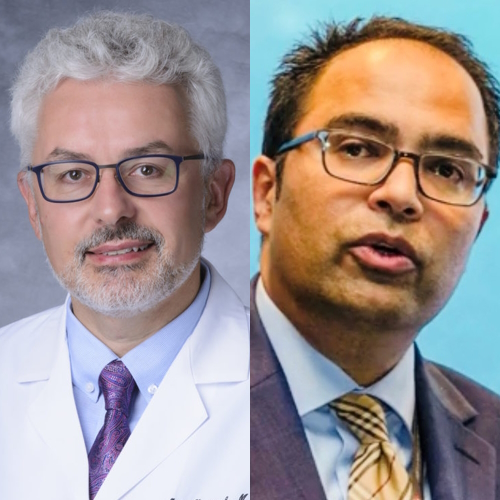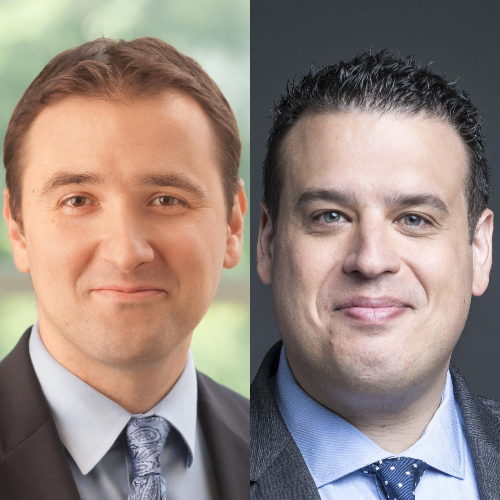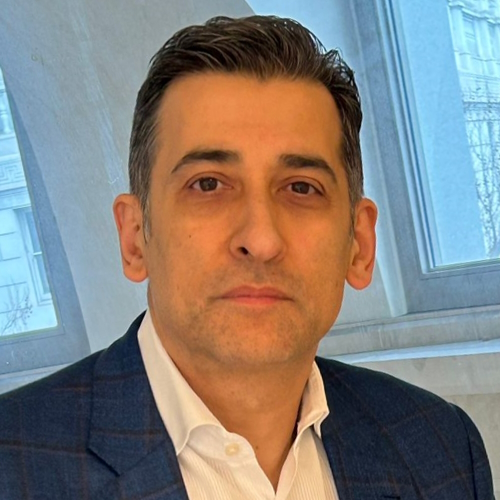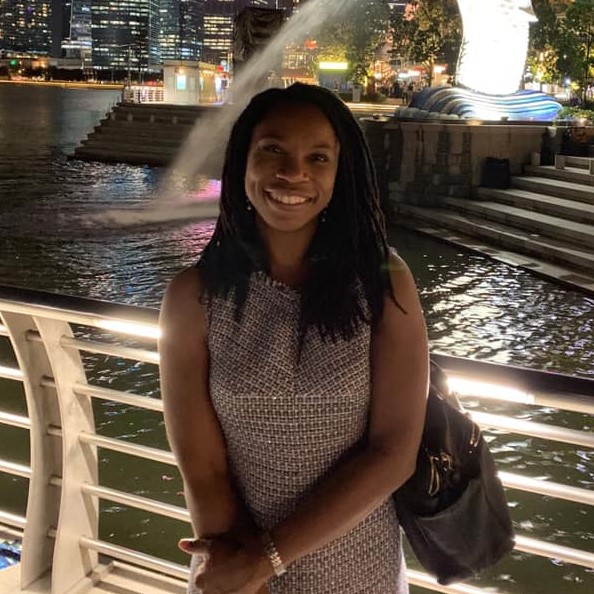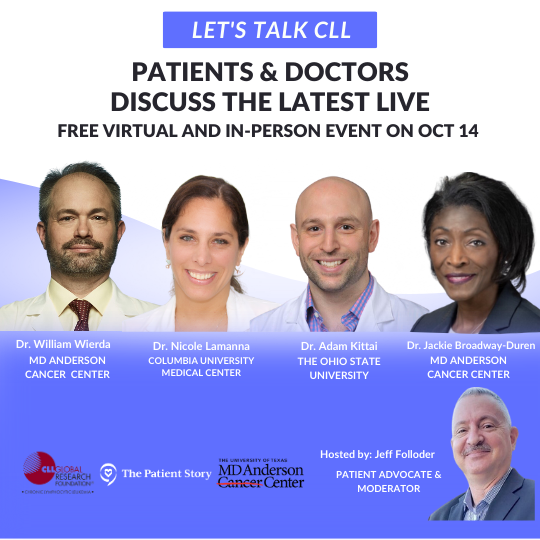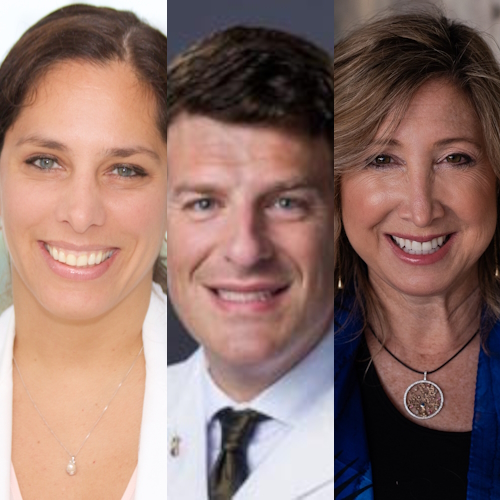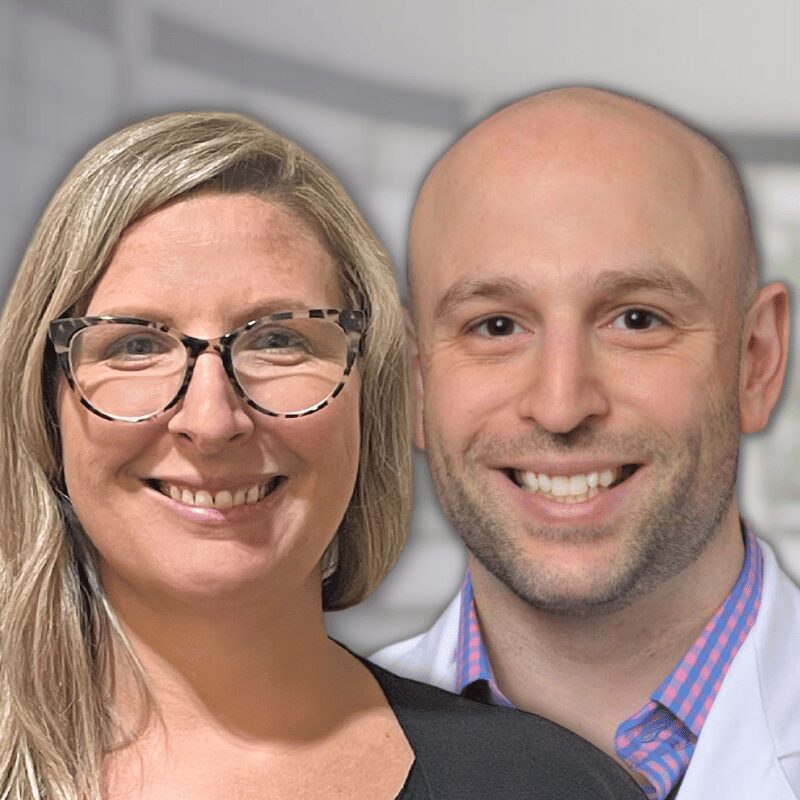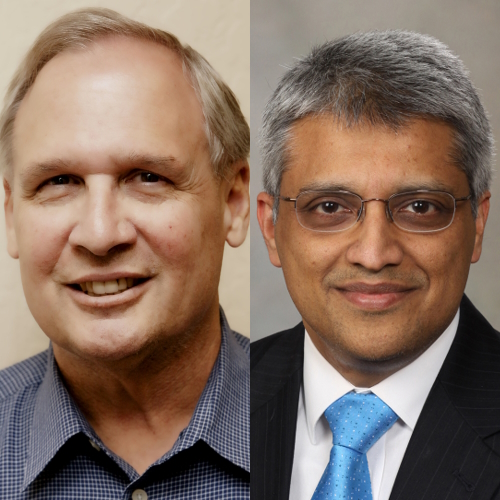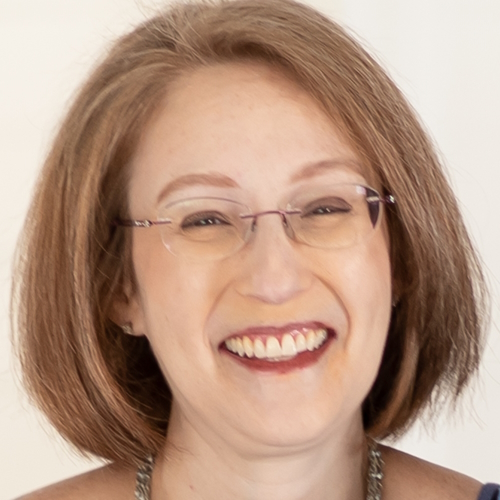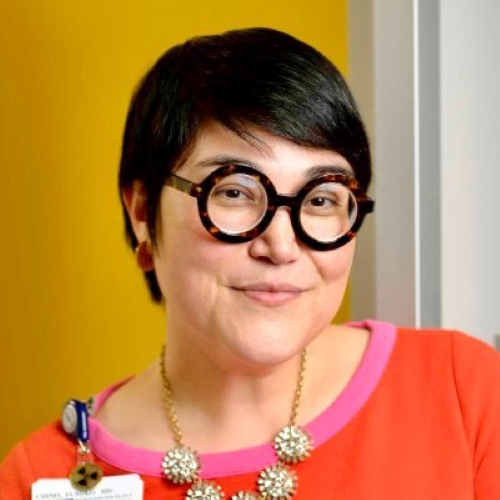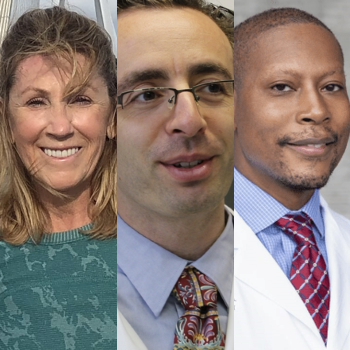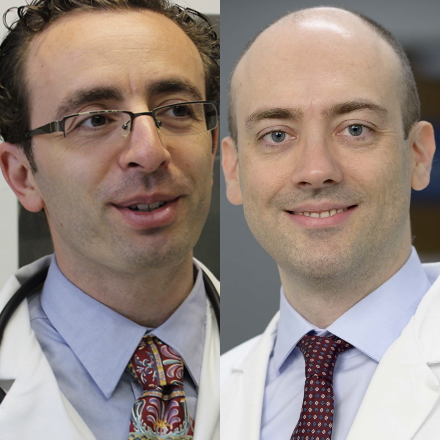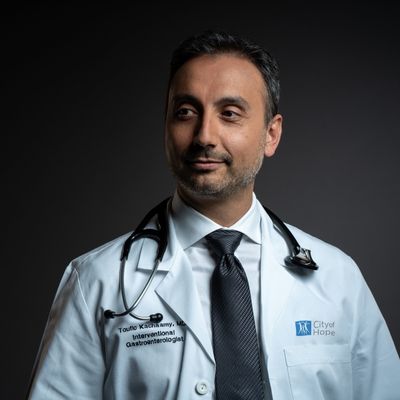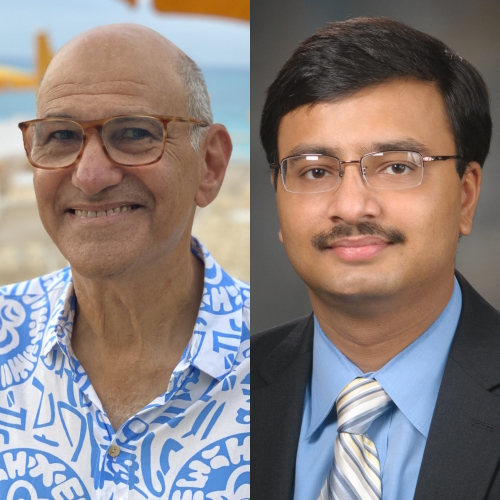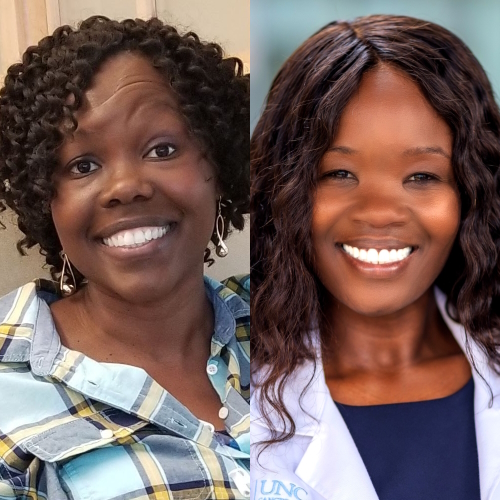How to Deal with Scanxiety as a Cancer Patient
Patients share what actually relieves their worries
Three cancer patients discuss how to deal with scanxiety, the overwhelming fear and anxiety that often accompanies medical scans and tests for cancer patients. Our cancer patient panelists Nick Mundy, Lainie Jones, and Matt Ode share their real-life experiences and offer practical tips and strategies for managing scanxiety and maintaining emotional well-being throughout the cancer journey.
This interview has been edited for clarity. This is not medical advice. Please consult with your healthcare provider for treatment decisions.
Introduction
Alexis Moberger, The Patient Story: We are excited to have this conversation along with our three panelists.
The Patient Story features in-depth storytelling with cancer patients. All three of our panelists actually have shared their stories on our platform. We also have live discussions with top cancer specialists to get the latest information on top treatments and new therapies.
Nick Mundy: I live in the Cincinnati area. I’m 33 years old and a two-time thriver of non-Hodgkin lymphoma. I just finished chemotherapy on May 24th for a diagnosis of stage 4 diffuse large B-cell lymphoma with liver metastasis.
Right now, I get scans every three months. I’ve been getting scans and dealing with scanxiety for about the last decade, long before I ever knew what scanxiety was.
Matt Ode: This is such an important topic because no matter who we are, when we’re going through cancer, we all face this. We all face scanxiety. We all face some type of anxiety.
I’m 31 years old and from Cleveland, Ohio. At 24, I was diagnosed with stage 4 testicular cancer. The doctors found an 11 cm tumor in my small intestine. I went through five rounds of BEP (bleomycin, etoposide, and cisplatin).
I ended up having many complications after my initial surgery, which led to multiple surgeries and eventually to kidney and liver failure. I was in a coma for two weeks and ended up being in the ICU for over 40 days. I had to relearn to walk and relive my entire life again at the age of 25.
Lainie Jones: Thank you so much to The Patient Story for having us and for the amazing community that you have created. I’m so honored to be here. I’m excited to talk about this because it’s something that’s not talked about enough.
I’m 39 years old. I live in South Florida and I’m a five-time cancer survivor. My first cancer diagnosis was at 18 months old so the word “survivor” has stuck with me throughout my entire life. My next diagnoses were breast cancer at 24, melanoma at 25, thyroid cancer at 26, sarcoma, and another relapse of stage 0 adrenal cortical carcinoma.
What is scanxiety?
Nick: Scanxiety might be closely related to PTSD and/or the fear of relapse. According to the Dana-Farber Cancer Institute, common symptoms include irritability, sweaty palms, increased heart rate, and nausea in the time leading up to an exam.
I personally think I have all of those signs and symptoms when dealing with scanxiety. The irritability is off the charts, the sweaty palms, the increased heart rate, and even my bowels change.
We’re going to talk about how we deal with it. I would love to hear what scanxiety looks like for you.
Matt: When I was rebuilding my life, I’d go in and get scans every three months and it can be very stressful at times.
As you prepare yourself, as you do the things you can control in your life, and focus on the things you can control in your life, time will help heal through this process. And as we continue to heal through ourselves through cancer, we also heal through ourselves through anxiety and scanxiety as well.
Today, I am very blessed to say that I am six years cancer-free. I now only have to do one-year scans. For some of you, it may turn from three months to six months to once a year. Everyone’s at a different pace.
Lainie: Scanxiety is something I deal with all the time. My scan routine is every three months. It looks very different for every person, but because I live with a rare genetic mutation called Li-Fraumeni syndrome, I’m monitored very closely.
Something that I always experience is loss of sleep the night before a scan and about two weeks leading up to the scan.
How to deal with scanxiety
Nick: How do we deal with scanxiety? What are some of the tips, tricks, and resources that we use?
Lainie, you’ve got a beautiful outlook and you’ve been going through scans for a long, long time. How do you deal with scanxiety and how do you continue to maintain a positive mindset throughout all of this?
Live incrementally
Lainie: First of all, I want to say I’ve mastered the whole-body MRI. I think that that’s something to be really proud of because I can stay still for two hours.
I live by the motto that I live every day like it’s my first. A lot of people ask, “Wait, what? You live every day like you were just born?” I really do. As a cancer patient, cancer thriver, it’s a gift we’ve been given so that is my motto.
I get scans so frequently that I tell myself if there is something there, it’s only three months old. That’s really helped me stay positive.
I’ve had scans where things show up then you know it’s time to tackle that new adventure. I really think what helps is incrementally focusing on the times of your scans and staying on top of being your own advocate.
You know your body best. It’s so important to have that at the forefront of your mind. I live in three-month increments. Every time I get ready to go get my scans, I think, Okay, here I am, another three months. We’re going after it. Keep a positive mindset all the way through.
Nick: I love that. Living incrementally, living three months at a time. I’m going to take that and put it in my tool kit. I’m just entering the three-month scans so this is new to me. I’ve been through every six months, annually, or when something comes up. With that perspective and that re-framing, it gives you the power back so I really, really appreciate you sharing that.
Mind over matter
Nick: You’ve mastered the whole-body MRI. The cardiac MRI that I’ve gone through is usually about 90 minutes and every time I go through it, I’ve almost tapped. How do you manage to stay still through the two hours?
Lainie: Every single time I get strapped in, there’s an itch at the top of my toe. I think it’s really mind over matter. When I’m laying in that machine, I just put myself in the zone. I’ve mastered it to the point where I fall asleep and need to try to keep myself up.
I really make sure that I have a great playlist. It’s my Beating Cancer playlist on Spotify. Most of the time, institutions can play your Spotify list. I’m dancing mentally and giving myself good vibes. If I can’t play the playlist, I make sure I have some really good tunes to zone out. The noise is unbearable, but it’s mind over matter.
Nick: Truly some great nuggets of information. I really, really appreciate that, Lainie. Thank you for sharing.
Find the right support system
Nick: Matt has absolutely been through it. This man is a warrior and the definition of perseverance.
Matt, I know that you are big on controlling what you can control. Talk to us about how you deal with scanxiety. How do you control all the things that you’re going through and all the feelings that you’re feeling when dealing with scanxiety?
Matt: We have support systems such as our family and our friends, but our family and friends aren’t actually doing the scans. They’re not actually going through cancer. They’re there for us, but that can make us feel really lonely.
How do you find the right support system, especially when you’re feeling alone in the situation? You have this anxiety and you’re talking to people, but they’re not actually going through it. Sometimes you just feel like they’re just listening, but they might not understand exactly.
I was lucky enough that my hospital, the Cleveland Clinic, has what’s called the 4th Angel mentorship program. What they do is connect you with an individual who went through the exact same cancer as you. Ask your hospital if they have a similar program.
It gave me peace of mind when I was able to talk with this individual who had gone through pretty much the same cancer as me. Every time I’d get a scan, I would text him and say, “Hey man, I’m feeling this today,” and he’d walk me through how he was able to overcome it or what was able to help him. It was a tremendous help.
I built a Facebook group for cancer patients, survivors, and caregivers. The whole premise of the group is to help you along your journey with cancer. We have over 6,000 members in the group now. It’s an incredible family filled with love, support, and people who can relate to one another. You can pretty much search what type of cancer you have and I can guarantee you there’s somebody in that group that is going through something similar.
Ask questions
Matt: If you get really nervous and have so many questions, don’t be afraid to ask your doctor. A lot of times, the anxiety is made-up stories in my head. You have a scenario and you make it the worst possible scenario.
But when I would talk to my doctor and he’d say, “Hey, that’s not necessarily true, this is not necessarily true, and here’s how it actually works. Maybe here’s how you’re feeling and I dealt with so many patients like this,” that can give you a sense of ease.
Nick: That’s so powerful. Thank you so much for sharing that. I love your vulnerability. Sometimes as cancer patients, I think we can get blinded by the headlights and almost forget that we have the right to ask these questions. We forget that it’s okay to feel how we are feeling at this moment.
I love the Facebook group because it’s imperative to have a great support system and other people that you can express yourself authentically and honestly with that have walked a mile in your shoes.
We are all surrounded by people that love us. We have great family and friends and caregivers, but if they haven’t been in your shoes as a patient, it’s very hard sometimes to get the sincere empathy that you’re really looking for.
The group that you have sounds phenomenal. I’ve gone through this journey many years where I felt alone and I could have definitely used a Facebook group like that. I’m glad that you initiated that and created it.
Be vulnerable
Matt: One last thing is your vulnerability is not your weakness. Your vulnerability is actually your strength. I’m not saying to open up to the world. You don’t have to be a panelist like us and share your story everywhere. Being willing to open up to somebody that you can trust is like baggage getting off of your shoulders.
When I first got diagnosed, I did not want to share any of my emotions for a good month. I was stone cold, afraid to share anything, thinking I was weak, especially as a man. I felt like being a man, you can’t just express how you’re feeling.
When I was finally able to release some of my emotions and really express what I was going through, I could then take away what I wasn’t able to control and focus on what I can control, where I needed to go, and the steps to help heal me.
Lainie: And also, just to add to that, you’re helping other people while doing that. It’s so important. A lot of times, we hold things in and don’t realize that when you’re sharing your story, it’s going to help other people. It’s so important.
Nick: I love that we’re having this discussion because often there’s another person who’s got the same scanxiety, fear, worry, or same question that you have. By being vulnerable and leading the way with that, it gives other people permission to be vulnerable as well and so I’m really glad that you guys both highlighted that.
Name your emotions
Nick: There are a lot of different ways that I’ve dealt with scanxiety over the years, some healthy, some not so healthy. Today, I really lean more into anything that’s going to improve my wellness or give me the best chance at being here long term so I’m making decisions that are going to give me more life.
One of them is naming the feeling that I’m feeling. Scanxiety, as we mentioned earlier, can manifest in multiple different ways and lots of different feelings, physical symptoms, and mental symptoms.
If I can’t name what I’m feeling, I’ll pull up a feelings wheel, similar to one that you’ll see in a therapist’s office. There are different emotions in the middle and often, I’ll start off with angry. From there, I’ll look at the other things and really see what is it that I’m really feeling.
I know that I’m presenting as angry, but what’s really underneath that anger? There’s typically fear, sadness, and feeling withdrawn. I take the time to pull out the feelings wheel or just sit down and put pen to paper and write what I’m feeling.
Take it a step further and share with someone who is a safe and trusted person: a loved one, a friend, a family member, or a peer-to-peer mentor like the program that Matt was talking about. I know that The Leukemia & Lymphoma Society has a peer mentor program as well.
Get that feeling out and remove the power that it can grow when you keep it inside. Sometimes you feel like you have to be tough and put on a face for everybody. When you keep those feelings inside, it can bubble up and just explode. I can have an angry outburst, throw up from being so sick of how I’ve worked myself up, or have my knee shaking as I’m walking in before a scan.
I have found that naming the feeling, expressing it, and talking about it has taken the power away from it and it’s given me power back over the situation.
Manage your environment
Nick: The next thing that I try to do is manage my environment. Typically, when we hear environment, we’re thinking about the setting around us. If you’ve been going through scans like most of us have, there’s not much that you can do to manipulate your external environment.
But leading up to that scan, you can manipulate the environment of your home or office and create a safe place that feels very zen, relaxing, and peaceful. Spend time there and create a ritual for yourself.
As important as it is to make sure that you cultivate the proper external environment, I think it’s even more important to cultivate the right internal environment by being conscious of what you’re telling yourself. What’s the story that you’re telling yourself? What’s on repeat? Be really cognizant of that.
Managing my internal environment goes to telling myself the facts. I’m a master at spinning stories. When I do that, I get sick. I just keep going. I have to tell myself the facts. I do that leading up to my scans. I do that in the car. I do that while I’m in the MRI or PET scan machine.
What that looks like for me is, “I am safe. I am loved. I have everything I need to live a full life today at this moment. The only thing that worrying about this situation is going to do is change my health. It will not change the results. But if I continue to worry like this, it can and will impact my health over time.”
I want to live a very long and healthy life. I want to give myself the best chance and I know that me stressing myself out is going to lower my immune system. It’s going to open me up to infection. As someone who’s battled febrile neutropenia and been hospitalized countless times, I’m doing anything I can to boost my immune system.
We receive information from our doctors and that information changes from appointment to appointment. But the facts are still that I am safe, I am loved deeply by my family members, by my friends, and by my support system, and I have everything at this moment to lead a successful and meaningful life today.
And really, today is all I have control over. I don’t have control over the three months from now when I go back to get my scan. But today, I have everything I need to live a meaningful, fulfilling, and joyful life. I remind myself of that and I have to continue to replay that over and over until I eventually believe it and that becomes my default.
Practice deep breathing
Nick: Box breathing or breathwork, in general, is something I do to get myself nice and calm. One of my favorite sets of breathwork is a nice deep inhale through the nose for four seconds and then exhaling through the mouth for six. I’ll do that about 10 times.
By focusing on my breath, it brings me back to the here and now. It doesn’t allow me to project myself into the future, into the doctor’s office where he’s reading me the results about my end of life because that’s the way that my brain works.
When I start to spin these stories about what the doctor’s going to tell me when I see him or her next week, all of these things have helped me mentally, emotionally, and physically.
Lainie: That’s so awesome. I suffer from lymphedema in my left arm and I’ve had numerous cellulitis infections from it. There was a point when I was in the ER and my heart rate was so high because I was so worked up. I was covered in hives,
My husband said, “You have to calm down and take deep breaths and just put relaxing music on.” Your box breaths would have been so helpful at that moment. They said, “You’re going to be admitted into the cardiac area if your heart rate doesn’t drop.”
Those deep breaths and getting in the zone are so important. Your body can do crazy things, but make sure you’re in tune with it.
Make healthy choices
Matt: I love that. I would say one thing that has helped me tremendously is focusing on the foods that I eat and making sure I try to get some type of movement.
I know that for some people who are going through cancer, it’s tough to workout. Getting some type of movement in and eating the right foods will not just mentally, but also physically prepare you for the scans to come up. If you’re prepared, you will feel more confident, you will have more courage, and that usually leads to less anxiety.
I eat clean foods such as lean protein, vegetables, and fruits, and stay away from fast food and heavy carbs as much as I can. I’m not saying carbs are bad by any means, but some of these things make you bloated. It’s not good for your gut health and ultimately not good for your mindset.
When I feel like crap, guess what that means? It leads to more anxiety in my life. Going into that scan, I’d feel less prepared. When I’m eating clean and moving, I’m doing everything I can to try to heal my body.
You’re never going to be perfect. There are going to be ups and downs. I remember during my chemotherapy, there were some days when the only thing I could eat was a peanut butter and jelly sandwich, so I ate a peanut butter and jelly sandwich.
But if at least 80% of the time you really try to take control of your health, you’re going to feel so much better going into these scans. You’re going to feel confident and stronger. You’re going to feel like you’ve done everything you could control.
Whatever the outcome is, if you’re getting three-month scans, guess what? The worst possible scenario is they caught it within three months, but you did everything you possibly could to take care of your health. For me, that has made a massive difference when it comes to preparing for my scans as well.
I created a whole list of healthy food options, healthy snack options, and healthy vitamins. Talk to your physician before taking anything. It’s made a massive difference in my life and allowed me to feel more confident and more prepared going into my scans.
Anxiety while waiting for the results
Nick: There can also be some relief after you’ve gotten your results from the scans and found out that there was something there. We’re talking about scanxiety, but this is also another form of scanxiety that I could definitely relate to.
In 2022, I started feeling all the signs and symptoms of my non-Hodgkin’s lymphoma coming back. The fatigue was starting to set in. I was having wicked night sweats every single night, my beds were drenched, and my lymph nodes started to swell up.
I told my oncologist and the doctors in the ER, “I need a scan. Something’s wrong with me. I had cancer last year and I think I have cancer again.” Everybody said, “No, you’re fine. You look healthy. You’re strong. You’re in good shape. You’re doing all these physical activities.”
That made me feel like a crazy person until I got my scan. I had to beg to get the scan. When I got the results, I saw the words liver metastasis and lesions. From there, I had a biopsy a week later. Then a week after that, I found out that I had stage 4.
While I wasn’t relieved to know that I had stage 4 with liver metastasis, I was relieved to have my intuition recognized and validated. I know my body better than anybody else. I live in it 24/7.
I knew that something was off. For people to continuously tell me that something wasn’t wrong made me feel all of the signs and symptoms of scanxiety. There was a little bit of relief once the diagnosis came.
I say that to cover the spectrum of scanxiety. We could interview 15 other people and they are going to have different things that they do and different experiences with their scanxiety. I wanted to share and make somebody else who might be going through something similar feel seen. You can have scanxiety and almost relief or have some of these things come up as you do find things that are on your scans and your results.
Anxiety during treatment
Lainie: Treatment on its own can be anxiety-ridden. I’ve done chemo three different times and I’m on treatment for the rest of my life so I get infusions every 21 days.
When I was going through the aggressive portion of chemo, I would always try and make it fun. Turn lemons into lemonade. I know that sounds so cliché, but making an experience that’s maybe a little dark or not so fun helped put me at ease.
I would always have somebody come with me, a friend or family member, and just have fun. I know that sounds silly, but sometimes fun helps that anxiety go away. Make it into an experience. Every day is a memory so make it a memory.
Treat yourself after a scan
Nick: Do you have a go-to treat after your scan? You got to treat yourself. After you’ve gotten out of the two-hour MRI, what do you do? How do you celebrate or how do you at least sigh and let yourself just breathe again?
Lainie: The first thing is I go to the bathroom. That’s a treat on its own.
Matt: I love it. I still have anxiety until I get my results. My results usually don’t come for 3 to 4 days so even after I’m done with the scan, I’m still nervous. I got half of it done. Now I got to get the results.
Anybody who gets scans usually waits at least 12 hours, sometimes even 24 hours, before they can eat anything because they need to make sure their body is completely cleansed.
Once I get my results and get the all-clear, I take my wife and we usually go to a nice steak dinner. That’s how I do it. I celebrate when I get the actual results.
Lainie: I love that. I don’t really have a specific food I like to eat after. All I know is I just want a big cup of water to get rid of that crap that they inject in your body. Fortunately, for a whole-body MRI, there’s no fasting. I try to eat a little something before.
I go to MD Anderson and I just sit and wait. I don’t really have a celebratory meal. Maybe get a nice coffee.
But when I have surgeries, that’s a different story. I like to have my McDonald’s waiting for me when I’m done with surgery. It’s not healthy, but a guilty pleasure.
Matt: We all deserve a little guilty pleasure.
Lainie: Yeah, exactly.
I travel to Houston every three months for my scans. I always keep my medical ID band on. If my husband doesn’t come with me, when I get home or once we get the all-clear, he has to take it off. It’s like a celebratory tradition. Another three months to go! It’s always nice to have those little traditions as a cancer patient.
Staying strong before and after a scan
Nick: How do you not lose your will to fight?
I personally feel like there is no way that I can lose by showing up and living life to the fullest on a daily basis, being the best version of myself that I can possibly be.
I empty the tank every single day. I live boldly. I love boldly. I try to treat others with respect. I try to honor my values and my morals. This is outside of cancer, really.
At the end of the day, I really feel like if I operate like that on a daily basis, losing is not even an option. I’m going out, I’m giving it everything I’ve got every single day, and I think that’s the best way that I can possibly honor life.
We’re all going to die. We came into life the same way. We’re going to leave the same way gradually or suddenly. But in order for me to be prepared for that, I just need to live well. I try to live well on a daily basis. I feel like if I live well on a daily basis and I love well on a daily basis, then there’s no way that I can lose.
Matt: I love that, Nick, that was perfectly said. I really wouldn’t have to say another thing. Going through what we’re all going through makes life just a little more precious. It puts things into perspective.
The little things that I used to worry about before cancer, like certain arguments or feeling I might be losing certain friends, don’t really matter so much anymore. What does matter is the people who love me. Being the best possible version of myself, just like Nick said. Then to add a little cherry on top of that is giving back.
Personally, being able to serve and help others is what gives me true happiness and fulfillment in my life. I have a little saying and it’s actually an acronym called h.o.p.e. — help one person every day — and that is just the motto I live by.
If I can help one person every day, being a Christian, I feel like I’m able to serve God in the way that He wants me to. I’m not pushing religion on anybody, but that’s another thing.
My faith has helped me through a lot of this. I know a lot of people have some type of faith; that will help you through it as well. Being the best version of yourself, realizing that life is just a little more precious, not worrying about those little things, being of service to as many people as you can, and knowing when your time is up, you can say, when you meet your Creator, that you did everything you possibly could.
Lainie: Matt, I love that. For me, it’s one word: purpose. We are all here for a reason.
People know me as the girl who’s had five cancers; that’s not very hard to forget, but I don’t let it define who I am. I let it empower me. It’s so important to take your experience, empower others, and not look at cancer as a death sentence. Let this empower who you are and help inspire others because it’s so important.
Unfortunately, we have been given a gift that nobody wants. Take that gift to help inspire others and lead with purpose.
I have a social media platform that I use to share my journey. I truly believe that if I’m helping one person, that’s why I’m here, thriving, and living every single day like it’s my first.
Conclusion
Nick: I love it. Man, this is phenomenal. I am so grateful to The Patient Story for connecting us and for hosting events like this so we can have real talks and discussions with other cancer patients, caregivers, and family members who are in the trenches because we need it. Nobody fights alone.
Thank you, Lainie and Matt.
Alexis: Thank you, Nick, Matt, and Lainie, for joining our discussion. We definitely want to continue these live discussions and make sure that they are educational and helpful to patients and caregivers. You can also find the latest patient stories and the latest medical news on our platform.
